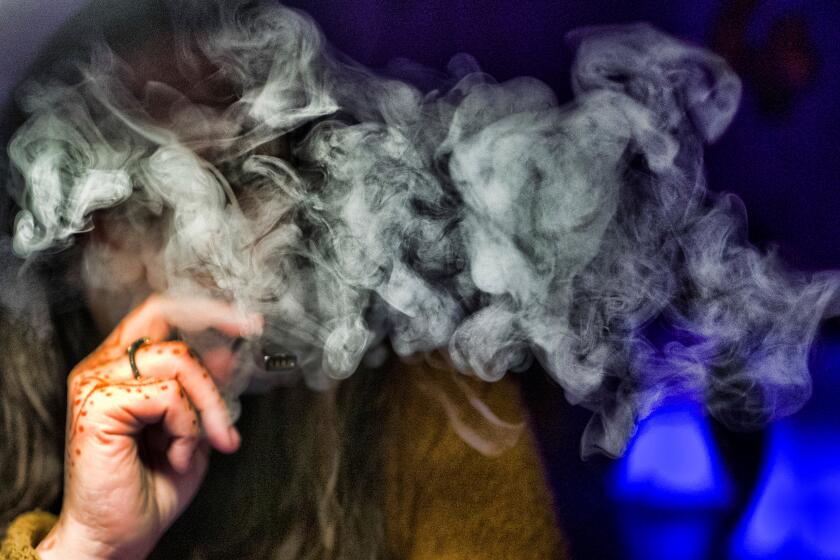Reduced-nicotine cigarettes may be arriving in the U.S. soon

- Share via
Decaffeinated coffee and reduced-sugar soft drinks have had their day. Now, according to a small biotechnology company, it’s time for low-nicotine cigarettes.
Altria Group Inc. and RJ Reynolds Tobacco told regulators two years ago that such a product might not be possible. But their claims may be upended after 22nd Century Group Inc., a Williamsville, N.Y., company, went before the Food and Drug Administration this month seeking to market cigarettes with 95% less nicotine than conventional ones.
22nd Century has for years made Spectrum cigarettes, which have varying levels of nicotine and have been used for government-funded research on tobacco and addiction. It won authorization from the FDA in December to start selling a brand to the public, which will be named VLN. The next step is to get permission to market the cigarettes as a low-nicotine alternative.
“The product greatly reduces your nicotine consumption, and it smells, burns and tastes like a conventional cigarette,” John Pritchard, the company’s vice president of regulatory science, said in a phone interview before the Feb. 14 FDA meeting.
Sales of disposable e-cigarettes have surged thanks to a loophole in new federal vaping restriction.
His company aims to disrupt the nearly $100-billion U.S. tobacco industry by marketing its cigarettes as a tool to wean adult smokers off addictive nicotine. Pritchard said he plans to present data showing that former smokers or those who never smoked have low interest in the product.
A nod from the FDA would give 22nd Century a useful marketing tool that Marlboro maker Altria lacks. Altria is selling Philip Morris International’s IQOS device, which heats but doesn’t burn tobacco, in the U.S. But the agency still hasn’t approved an application to market it as a reduced risk compared with cigarettes.
22nd Century said its application should be easier to evaluate than Altria’s, given the body of research on its Spectrum cigarettes, which were used as part of $100 million of federal grants to study low-nicotine cigarettes.
The company also says its central claim — that its cigarettes have 95% less nicotine content — is easier to verify than the reduced-risk designation that Altria is seeking for IQOS. It hopes to start selling the cigarettes by the second quarter.
After the FDA declared in 2018 that it intended to establish rules on maximum nicotine levels in cigarettes, Altria said it wasn’t clear whether substantially reducing cigarettes’ nicotine “is technically achievable” or whether it would lead to reduced smoking. Reynolds, meanwhile, said the industry is “at least 20 years away from producing tobacco at a commercial scale that would meet the range of low-level nicotine discussed.”
22nd Century counters that by citing the FDA’s own assessment of a plan to lower nicotine to the levels found in VLN products. The agency says the restrictions would lead to 5 million additional adult smokers quitting within a year of the plan going into effect, while averting more than 8 million tobacco-related deaths by the end of this century.
The company holds patents on methods of producing cigarettes by targeting different genes and enzymes in tobacco plants, and makes them from genetically engineered tobacco. It is also working on non-GMO tobacco lines.
More to Read
Inside the business of entertainment
The Wide Shot brings you news, analysis and insights on everything from streaming wars to production — and what it all means for the future.
You may occasionally receive promotional content from the Los Angeles Times.











